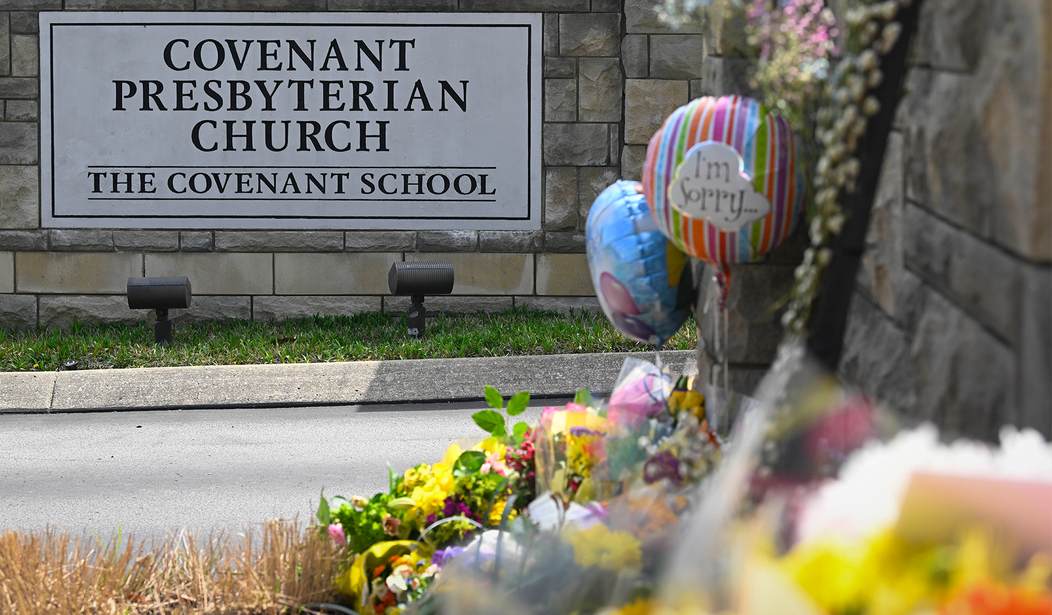It has now been more than four months since trangender mass shooter Audrey Hale murdered six people at The Covenant School in Nashville, Tennessee. All the funerals are over and life is slowly returning to normal in the community. And yet the public has still not seen the shooter’s manifesto or the other documents police collected in the aftermath of the attack. Initially, it was the police and the FBI that appeared to be holding up the release, but now the situation has been shifted to the courts. In a bizarre turn of events, the families of both the shooter and the victims have teamed up with the school and are fighting to prevent the documents from being released. A coalition of elected officials and a local newspaper have sued to have the material made public. But one open government and transparency analyst told the New York Post that the legal theory being pursued to keep the papers secret is flawed and a court decision in their favor would be “unprecedented.”
The efforts of parents and Nashville community members to stop the release of Covenant School shooter Audrey Hale’s writings, if successful, would be an unprecedented move that could have bigger implications going forward, an open-government expert told The Post.
Tennessee’s victims’ rights statute does not give individuals a “carte blanche” to veto other laws, such as the one that allows people the right to public records, said Deborah Fisher, executive director of the Tennessee Coalition for Open Government.
“There’s nothing really to indicate that there would be this ability for victims to veto the release of otherwise public records and in, and in this case, crime records,” Fisher said Thursday.
There are some situations where evidence related to a crime can be kept under wraps for a while. These decisions largely center on the rights of crime victims and their families. Tennessee already has a law on the books that ensures the safety and privacy of crime victims, particularly in cases of sexual assault or when suspects remain at large and could pose an additional threat to survivors. But as Deborah Fisher pointed out, none of those factors would seem to apply here and a victory for the families would essentially amount to a precedent granting a “veto” to crime victims’ families in defiance of the free press and the public’s right to know about law enforcement and governmental activities.
In this case, the shooter is long since dead. The police have not even suggested that there were accomplices involved, so there should be no further danger to the families if the manifesto is released. Almost all of the writings are reportedly about Hale herself, and even if there are any details about individuals at the school included, they could easily be redacted for public release. But even that seems unlikely since The Covenant School wasn’t even Hale’s first choice. She was shopping around for the easiest school to attack.
I’ve been struggling to find a reason for the parties involved to fight to keep the manifesto secret. I suppose the families of the victims don’t want to relive that terrible day if it’s spread all over the media again and I’m sure the Hale family would like to keep their daughter’s troubles out of the public eye. But why is the school helping them? Shouldn’t they want to make it clear that they did everything they could and explain what security improvements are being put in place to prevent a similar tragedy from happening again?
As Fisher further notes, had Hale survived the encounter with the police and gone to trial, all of these documents would have become court records and been subject to public release sooner or later. But even though she died and there will be no trial, the material was still collected by law enforcement and used in the initial investigation. The public is owed an explanation of the findings of the police and the evidence they examined to reach their conclusions.
There is also simply too much political fighting coloring this discussion. LGBTQ activists clearly don’t want the manifesto released, likely because they fear how it might reflect on the trans agenda. But that shouldn’t change the fact that we need every bit of data that can be retrieved from any shooting event like this to help schools (in particular) be better prepared the next time some maniac decides to try something like that. It’s been long enough. Last month, Hale’s family “transferred ownership” of the document to the families of the victims but the Metro Nashville Police Department remains in control of them. Release the manifesto and all the rest of Hale’s documents.









Join the conversation as a VIP Member